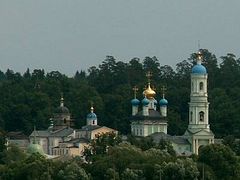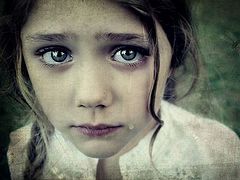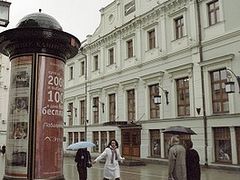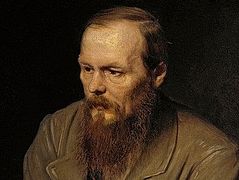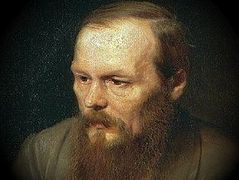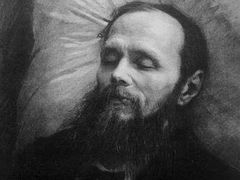For many, the idea that we are somehow responsible for the sins of others, or can repent on their behalf is counter-intuitive and deeply troubling. It is distinctly non individualistic. However, it is a cornerstone of Orthodox devotion. Dostoevsky presented a very popular version of this teaching in the words of the fictitious character, the Elder Zosima, in his The Brothers Karamozov. The elder was modeled, many say, on the elders of Optina Pustyn. His teaching and story, contained in the novel, have the authentic sound of Holy Orthodoxy, and could be found nowhere else.
I offer an excerpt here from The Brothers Karamozov, that is the elder teaching. The translation is by Richard Pevear and Larissa Volokhonsky, whose work is without equal.
* * *
 Feodor Dostoevsky
Feodor Dostoevsky “Love one another, fathers,” the elder taught (as far as Alyosha could recall afterwards). “Love God’s people. For we are not holier than those in the world because we have come here and shut ourselves within these walls, but, on the contrary, anyone who comes here, by the very fact that he has come, already knows himself to be worse than all those who are in the world, worse than all on earth … And the longer a monk lives within his walls, the more keenly he must be aware of it. For otherwise he had no reason to come here.
“But when he knows that he is not only worse than all those in the world, but is also guilty before all people, on behalf of all and for all, for all human sins, the world’s and each person’s, only then will the goal of our unity be achieved. For you must know, my dear ones, that each of us is undoubtedly guilty on behalf of all and for all on earth, not only because of the common guilt of the world, but personally, each one of us, for all people and for each person on this earth.
“This knowledge is the crown of the monk’s path, and of every man’s path on earth. For monks are not a different sort of men, but only such as all men on earth ought also to be. Only then will our hearts be moved to a love that is infinite, universal, and that knows no satiety. Then each of us will be able to gain the whole world by love and wash away the world’s sins with his tears …
“Let each of you keep close company with his heart, let each of you confess to himself untiringly. Do not be afraid of your sin, even when you perceive it, provided you are repentant, but do not place conditions on God.
“Again I say, do not be proud. Do not be proud before the lowly, do not be proud before the great either. And do not hate those who reject you, disgrace you, revile you, and slander you. Do not hate atheists, teachers of evil, materialists, not even those among them who are wicked, nor those who are good, for many of them are good, especially in our time.
“Remember them thus in your prayers: ‘Save, Lord, those whom there is no one to pray for, save also those who do not want to pray to you.’ And add at once: ‘It is not in my pride that I pray for it, Lord, for I myself am more vile than all …’
“Love God’s people, do not let newcomers draw your flock away, for if in your laziness and disdainful pride, in your self-interest most of all, you fall asleep, they will come from all sides and lead your flock away. Teach the Gospel to the people untiringly … Do not engage in usury … Do not love silver and gold, do not keep it … Believe, and hold fast to the banner. Raise it high …”

